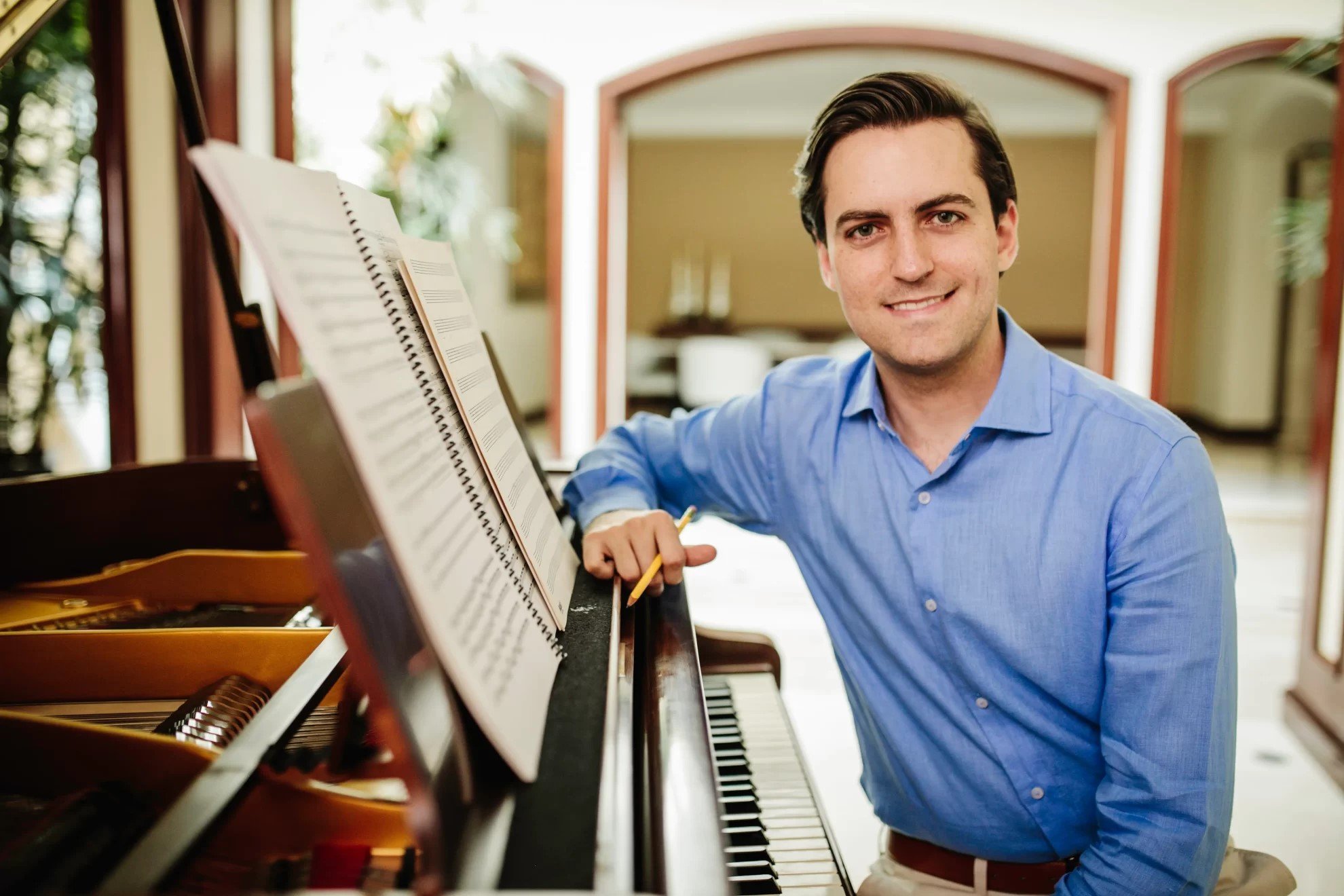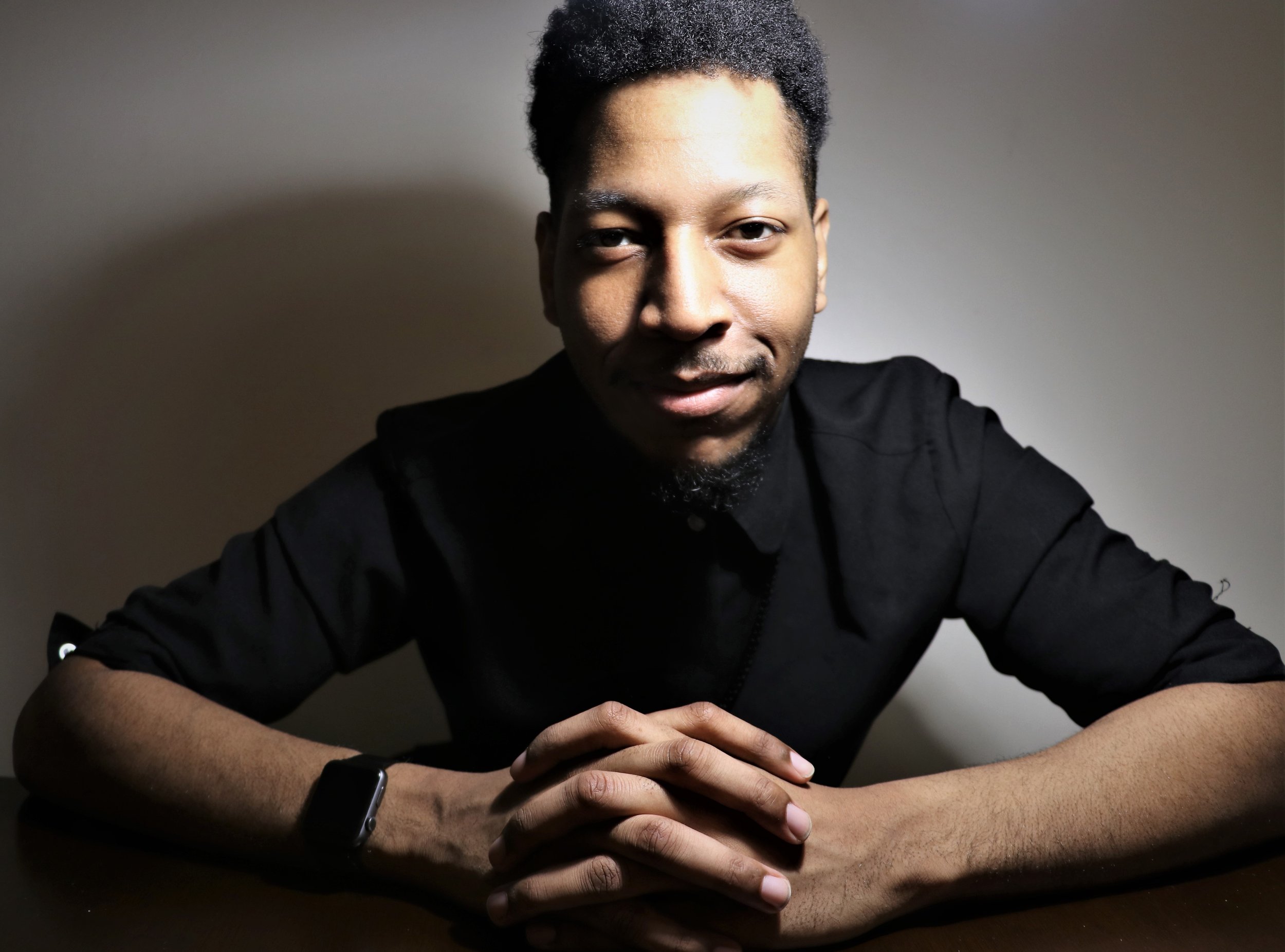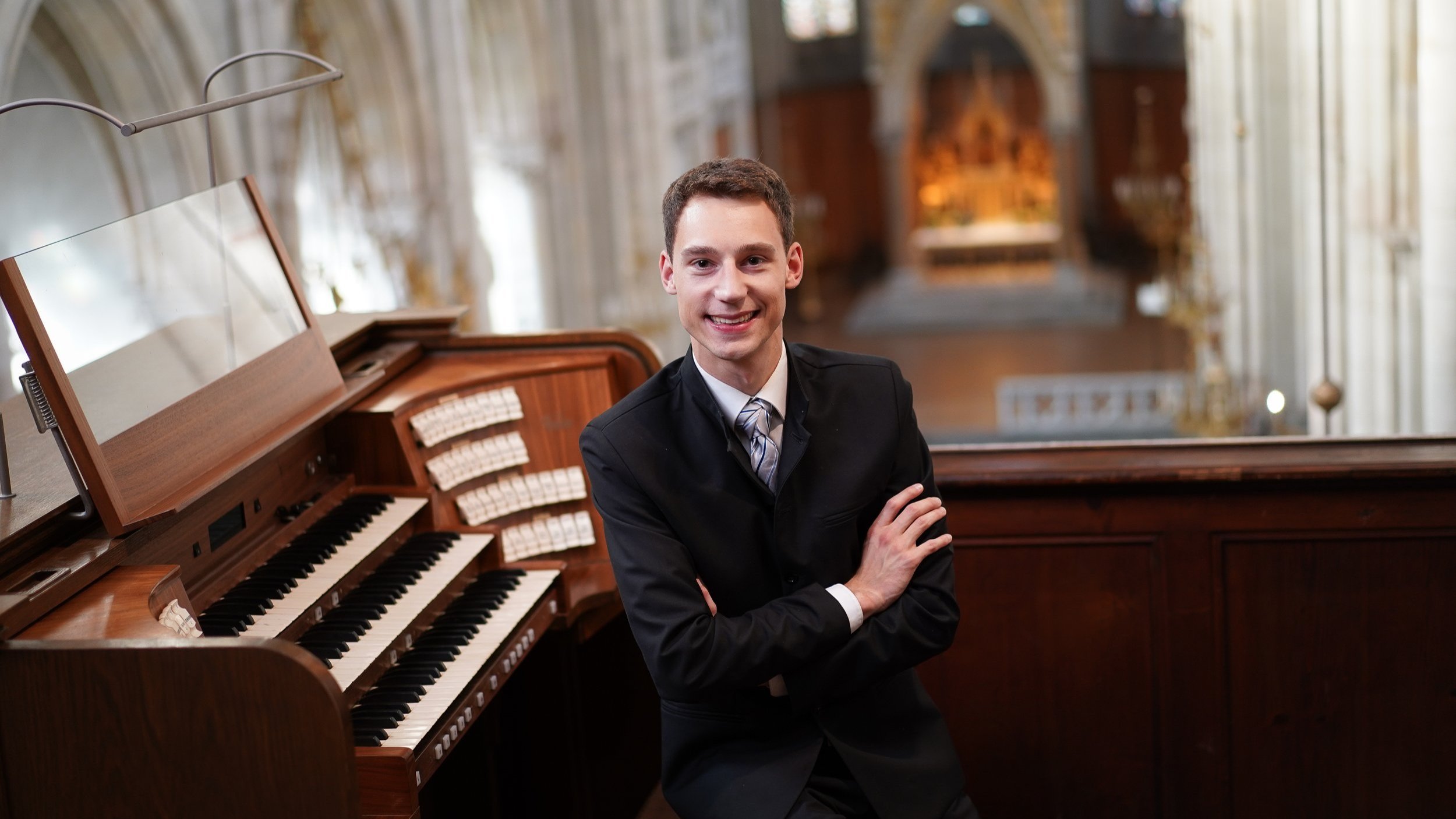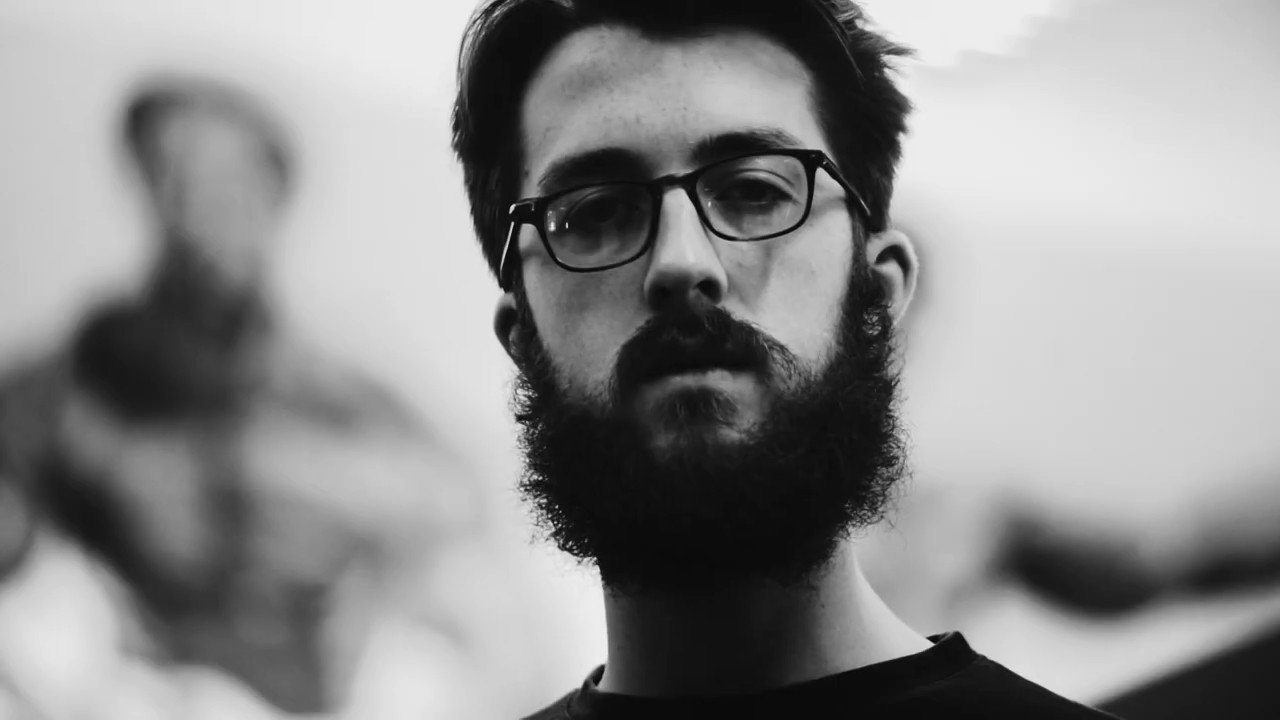Historical Performance Is Thriving Despite COVID-19
A Pedal Harpsichord for Bach’s Birthday, photo courtesy of Metropolitan Museum site
The Singapore newspaper Straits Times published the findings of a survey in which 1,000 respondents were asked to list what they believed were the top five essential and non-essential jobs. While doctors and nurses were understandably ranked at the very top of essential occupations, artists were unequivocally considered least essential, surpassing even telemarketers in percentage of least-essentialness.
Although this survey dealt with the issues of the costs of services and raising wages, it raised quite the ruckus from the arts world. Very vocal support for the arts poured in on social media, and a follow-up opinion ed emerged four days later, laying to rest any dispute within the Straits Times over the need for art in the modern world. However, the results of this survey bring up a crucial issue that faces all artists: relevance. Classical musicians are no strangers to debates over classical music’s relevance in the 21st century, and fortunately, many engage this issue head-on, bringing “old” music to “new” audiences, either in unorthodox venues (planned or not) or in nowadays socially distanced, livestreamed concerts.
Historically Informed Performance
Among the classical musicians fighting for relevance in today’s world, there exists the subset of historical performers who sound vastly different from the norm yet whose struggles are very similar, perhaps even more singular. Whether utilizing instruments known to audiences yet with different sound qualities (baroque violin, baroque cello, harpsichord, etc) or lesser-known instruments (sackbut, viola da gamba, cello da spalda), the proponents of the “historical performance” (HP) or “historically informed performance” (HIP) movement have been facing the question of relevance longer than most. The curious and open-minded would do well to consider the lessons HP musicians can teach them, especially as the global musical community recovers from COVID-19’s effects on the music world.
Keeping Unfamiliar Music Alive
HP-ers offer novelty through their presentation of older works of music performed on older instruments. Some of this music is quite familiar, as are its composers and instruments. Some composers and even instruments are so unfamiliar that one can count on one hand the number of experts devoted to them. HP ensembles and soloists do not simply keep alive certain composers that one may not hear every day; they keep alive a way of playing that would otherwise have gone extinct. Energy to resurrect and keep alive requires an enthusiasm beyond the average degree recital or orchestral audition. (When asked at my first summer at the American Bach Soloists if I’d “caught the bug,” I loudly exclaimed “YES!!!” and frightened the poor fellow student who asked me!) Perhaps this enthusiasm stems from a desire to showcase the genius of some unfamiliar composers and prevent a potentially uninterested reaction. The average concertgoer likely will not recognize Giles Farnaby, Barbara Strozzi, or Jean-Henri D’Anglebert and may choose to attend a concert with Beethoven’s Eroica Symphony or Holst’s The Planets as the featured work on the program. Perhaps the craft itself, based on curiosity, excitement, and earnest exploration provides inspiration. At the end of the first chapter of Inside Early Music, in a section appropriately titled “Why Does It Matter?” Bernard Sherman remarks that “the best historical performers provide some of today’s most insightful, original music-making.” The oxygen afforded to HP-ers from their repertoire has fueled their programs and audience engagement, especially when adventurous programming is still far from the norm. Thus, the historical performer infuses the concert and audience relations with a healthy dose of personal care and commitment.
Livestream Recitals
Although the task of refreshing audiences with less-performed music and an M.O. off the beaten path may seem intimidating, the invitation to listen is at the forefront of a Baroque ensemble’s mission. A month ago, I gave a livestreamed recital for the 5pm Series from my apartment in Cincinnati, performing on the clavichord, a close, soft-spoken relative of the harpsichord and fortepiano. Many comments that followed included “that was so cool!” “It sounds so different from a piano!” and “I’ve never heard anything like it!” (Please consider donating! to the Series’s relief fund!) As far as I know, my recital is the only clavichord event scheduled! Self-plug aside, such are very common reactions from audiences who have never heard baroque instruments live, and this curiosity leads to an enthusiasm over repeated exposure, an excitement that is palpable when one even walks into a concert hall for a baroque program.
Michael Delfin performing D'Anglebert: Prelude in G Major from Pièces de clavecin
Finding A Personal Connection
This enthusiasm among aficionados stems not just from the novelty of HP but from a personal connection between fans and performers. Crowdfunding, social media presence, and interactive concerts all invite audience participation in a way, but very often the best way to connect with audiences is to actually have a conversation. If audiences think classical music isn’t relevant, it’s because the musicians have made it irrelevant. Author and career coach Gerald Klickstein writes that in order to create sustainable careers, musicians must create value in society. A personal connection streamlines this process because a fan begins to feel viscerally attached to the work of creating art. The American Bach Soloists cancelled the remainder of their season after March and eventually their summer Academy, but their founder and director Jeffrey Thomas has continued to earnestly stay in touch in fans via newsletter, even personally introducing a 12-week project of sharing recordings titled “ABS at Home.” A visit to a live ABS concert very often results in connecting personally with ABS musicians. It’s not every day that performers, donors, administrators, and audience members gather at an end-of-season wine reception and know each other by first name! (Having been a part of the ABS Academy twice, I have witnessed this firsthand.) All musicians would do well to follow this example. The barrier between ABS performers and fans has disappeared long ago.
Tempo and Performance Practice in Brahms's Handel Variation
What are you going to do with your degree?
Another barrier that crumbled long ago for HP-ers is that of practical knowledge of music-making. Musicians are frequently asked questions like “what are you going to do with your degree?” and “are you going to teach?” The answers to these questions may vary in the long run, but inevitably an HP-er is put to this test with each new piece of music. On the ground level, a musician must be able to justify choices of ornamentation, articulation, dynamics (yes, Baroque music has dynamics), and much more, all based on writings from the time and context of the music’s origin. Any further justification falls into the realm of “good taste,” a common thread in many Baroque writings. (How modern musician can learn from this example of study!) At the highly professional level, many performing artists can lecture and write in a manner as equally compelling as that of their performances. At the ABS Academy, students, faculty, and the public are treated to lectures on topics ranging from Baroque systems of tuning, cultural contexts of repertoire, and even career management, all at the intellectual level of the most highly trained musicologist or theorist. In order to retain audience engagement during COVID-19, Early Music America launched a summer series of online interest sessions covering an enormous variety of topics as a way to educate both performers and fans of historical performance. (I contributed a lecture on Brahms’s Handel Variations for piano last month, complete with a glass table shattering halfway through!) All musicians would do well to look beyond the page as they practice, especially in the current need for distancing. With time to learn, one may even discover interestingly relevant facts about their art’s success in the struggle to survive!
Serving the Composer’s Intention
The lesson to be had here is to do your homework. Learn and proudly represent! Musical minds such as Robert Levin and Malcolm Bilson are living proof that musicians must communicate their discoveries well! Bernard Sherman remarks that “historical performance obliges you to serve the composer’s intention by learning all you can about their era’s playing style, including idiomatic features (like the Viennese waltz rhythm) that were never explicitly notated.” In more pointed terms, my piano teacher Awadagin Pratt once remarked in studio class that “an uninformed performance is an ignorant performance.” My fellow musicians, there’s enough ignorance out there in the world already. Let’s not make it worse.
Historical Performers Continue to Inspire
Historical performers continue to inspire most often because they simply explore new ways of looking at old things. This mindset is especially crucial now as the music world both struggles to hold onto its audiences and explores new ways to share music amid social distancing. When chamber partners are distanced, how will musicians practice and rehearse? Juilliard harpsichord professor Peter Sykes explored solutions in a livestreamed talk for San Francisco Early Music Society last month. When income is scarce, how will musicians survive? Artist fundraising has met with enormous success, as the Early Music America Relief Fund can attest. And lest anyone accuse me of being (obviously) biased, I freely admit that HP-ers are not the only ones to engage in such conversations! The Peabody Conservatory is addressing the question of ensembles, and many organizations such as New Music USA have taken part in artist relief.
Musicians from every niche, practice, and instrument are deeply feeling the urgency to share their art, especially with the current limitations in venue and audience, but this has not stopped innovation. If anything, musicians are becoming bolder in how they share and more creative with their sources of inspiration. For HP musicians this is no new battle, but perhaps lessons from the last half-century, lessons of pursuing a novelty, inviting others to listen, personally connecting with audiences, and relentlessly seeking inspiration will all find fertile soil in a music world ready to burst back onto the scene.
Sign up to receive Classical Post’s email briefing, released just twice a month with insightful articles on classical music amidst this fragile world.











